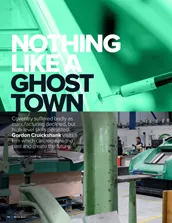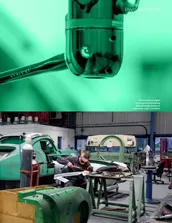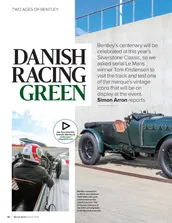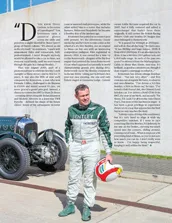It was sent to the Coventry-based Envisage engineering group, where it was taken apart and every piece laser scanned. Motor Sport visited the workshop earlier this year while the process was taking place behind closed doors.
The recreation isn’t just skin deep. The car’s chassis is made with heavy-gauge steel that was hand-formed and hot riveted by the 200-year-old Israel Newton & Sons company near Derby, which also makes boilers for steam locomotives.
The car’s leaf springs and shackles were made by the West Midlands firm, Jones Springs Ltd, which began as a blacksmith’s forge, and the ash frame was crafted by Lomax Coachbuilders in Ludlow.
Bentley’s bespoke Mulliner division brought the parts together and hand-trimmed the leather interior, including the horsehair-stuffed seats.
“The very latest digital design techniques came together with genuine artisanal hand-crafted artistry – often using manufacturing methods true to the 1920s,” said Paul Williams, director of Mulliner. “It’s only through this fusion of old and new that we could craft these cars, with the skills of our engineers mirrored in those of our specialist suppliers.
“We’ve issued thousands of drawings and specifications for components, and watching them arrive into Mulliner and then seeing the car take shape has been hugely rewarding.”
The engine is described as an “exact recreation” of the engine that Birkin modified to such dramatic effect.











